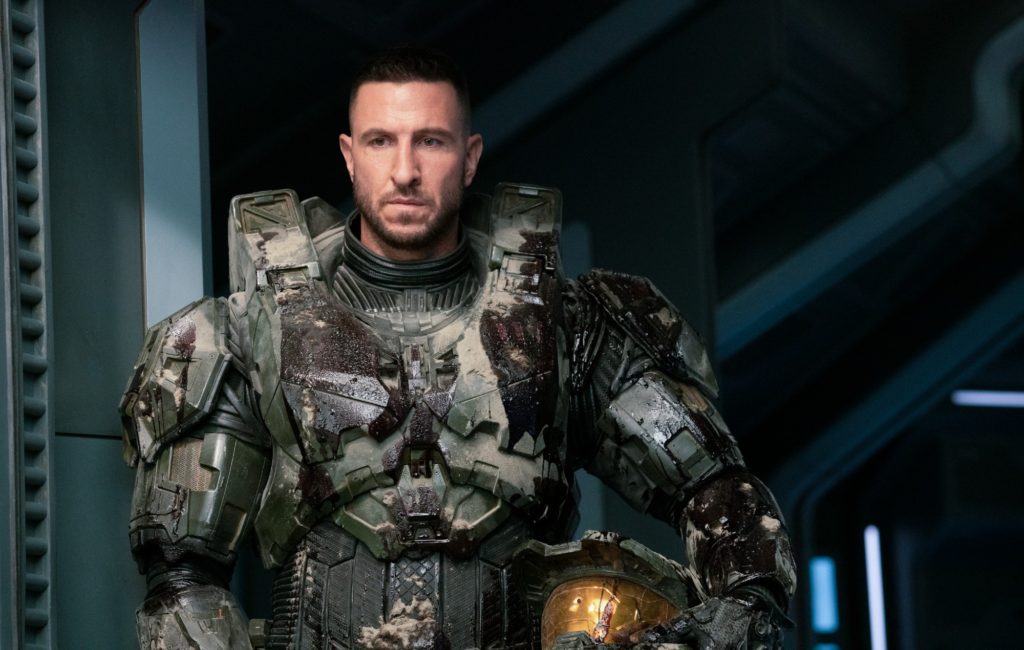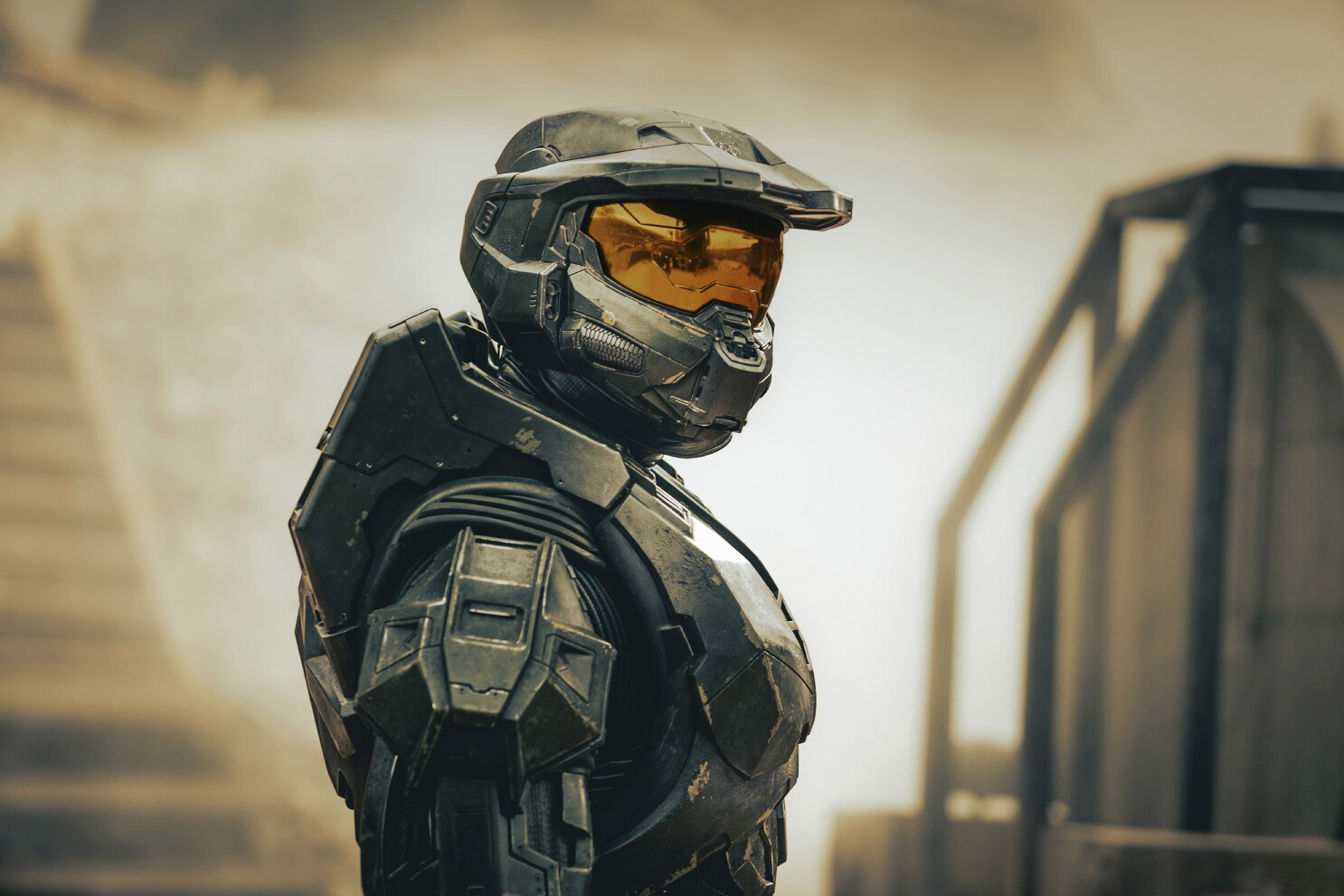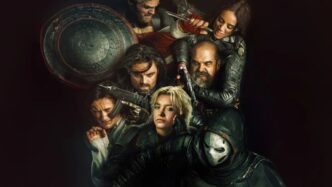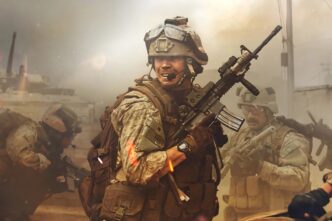Halo languished long in development hell, conceptualized initially as a movie before finally becoming a TV series with Paramount Plus. That’s both a boon and a bane: technology and TV production quality have improved by leaps and bounds in the last two decades, but the showrunners had a palpable task in adapting a soft-spoken protagonist who’s great as a playable character, but not so much as a protagonist of a TV series. Naturally, changes had to be made. But for many fans, these changes are almost on the scale of the sweeping changes made to the Foundation TV series, and thus the Halo show is regarded by many fans as just as much of a travesty. That is a shame: Halo is by no means a masterpiece, but this first season was a promising enough start that could be built upon in later seasons.
Master Chief, or John-117 (Pablo Schreiber), is the UNSC’s premier Spartan, an elite supersoldier who is a scourge for both human rebels and the conglomerate of theocratic aliens called the Covenant. Once he finds a strange artifact that shows him memories from his childhood, he starts to question his purpose more, embracing emotions, which are normally absent from Spartans. Dr. Halsey (Natasha McElhone), the creator of the Spartan program, has her own agenda with the mysterious artifact, and she grafts the first sentient AI, Cortana (Jen Taylor) onto Master Chief’s suit as a failsafe.
There are also other major characters in the show, such as the group of Spartans in the Silver team led by Master Chief (or John, as many refer to him), Makee (Charlie Murphy), a human operative of the Covenant who also can interact with the artifacts, and Kwan Ha (Yerin Ha), the daughter of the leader of the human rebels on the planet Madrigal.

Pablo Schreiber is compelling as Master Chief, even though the writers take his characters in directions that rubbed many fans the wrong way, especially with the decision to do a Master Chief sex scene in the penultimate episode.
There is a good balance between the escalation of his personal doubts and his competency as a leader and as the best Spartan that the UNSC has.
Natasha McElhone’s Dr. Halsey is also an engaging antagonist, although this direction, too, is a departure from the source material. Her unique motivations and camouflaged ruthlessness made her a convincing foil for not only John-117, but also other characters such as Halsey’s daughter, Miranda Keyes (Olive Gray). Makee has an effective backstory, but her arc isn’t as strong as it could have been, with her temporary alignment with the humans not being fully conceptualized. Kwan Ha, on the other hand, goes off on a tangent that’s almost entirely disconnected from the rest of the story, making her feel both annoying and disposable, even with the seventh episode that focused exclusively on her plot.
And let’s not forget Kai (Kate Kennedy), who’s easily the most engaging Spartan we have seen so far. Unfortunately, the other Spartans aren’t handled as well, and the show fails to convincingly portray the kind of camaraderie that we saw in other depictions of Spartan teams in games such as Halo: Reach.
The action scenes are more than adequate, especially with some competently shot battle scenes with the Covenant where Master Chief shines as a formidable, tactical badass. However, it’s the plot that’s the main culprit here. For every step it takes forward, it takes two steps back. There are too many tangents that don’t tie back well enough into the main plot.
As flawed as the first season of Halo was, it was enough to get the show renewed for a second season. This is clearly Paramount Plus’ flagship show, unless you count its Star Trek content (and for Bangladesh, you probably won’t count that). For all its troubles, Halo definitely takes many risks, and hopefully, it learns to take more calculated risks in the future.







